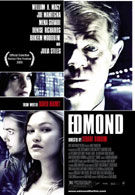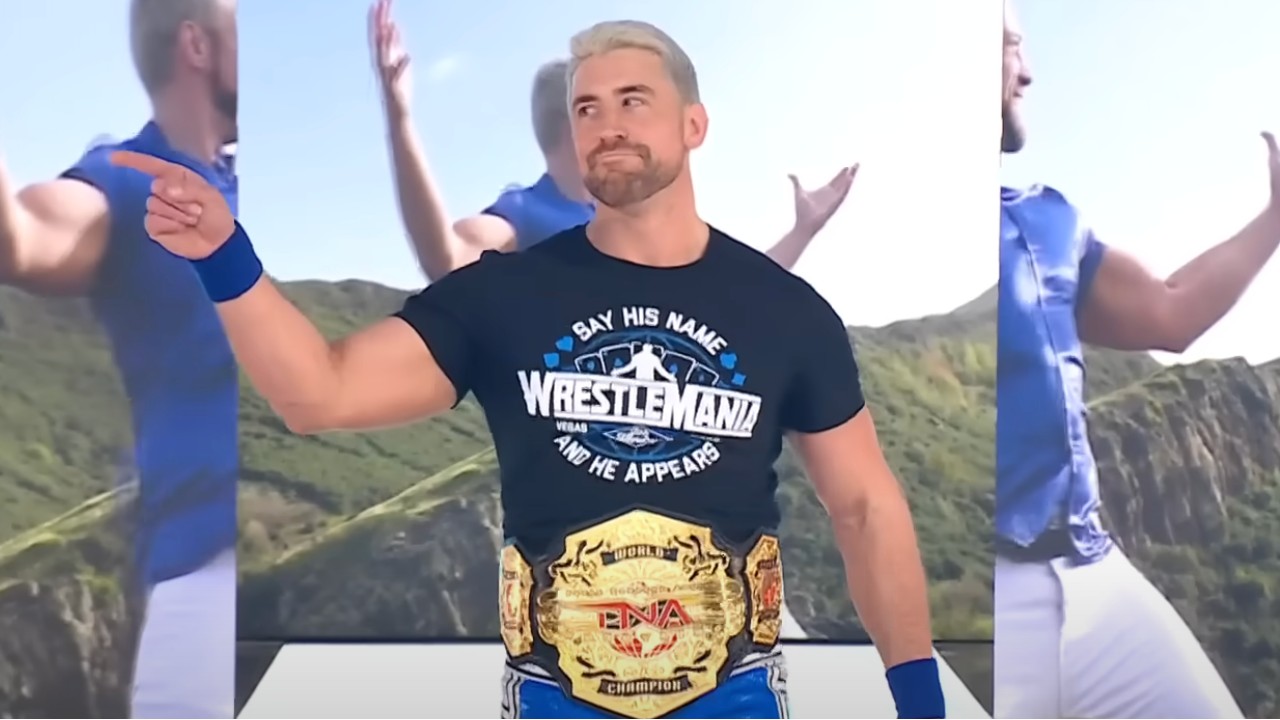It must have seemed a good idea at the time. You take a well-received 1982 play by David Mamet, have Mamet write the film adaptation, put in a couple of Mamet's favorite actors, and voila! You have a fiasco.
Edmond, featuring the incomparable William H. Macy in the title role, is an epic centered around yet another dullish, middle-aged suit who decides to take a walk on the wild side. So what do we know about Edmond at the outset? He's a middle manager at some company who looks like he's dead on the inside. He gazes wistfully at young lovers in the street, visits a fortune teller who's not where he's meant to be, heads home, and gives his wife some bad news. He evidently had a life up to this point, but seems to have slept through it and suddenly awakened. "I don't find you interesting sexually or spiritually", he announces. Wifey throws him out.
What follows is an odyssey through the Times Square of 1982, when it was a just a collection of sex shops, peep shows, whores, pimps and three card Monte players, not the current gussied-up Disneyland version. There, Edmond encounters every kind of hustler imaginable. He seems naive to a fault, yet he's learned enough in the business world to bargain hard for everything. One wonders, where the heck has he been for the past two or so decades? You'd think he was an extraterrestrial just off the rocket. He spews racist invective alternating with new agey philosophical insights. No wonder: Mamet wrote this.
Edmond buys a World War I survival knife, one of those weapons you find in movies that somehow, without the least bit of training, turns the clumsiest, geekiest spaz into a stone cold killer just because he owns it. Edmond nearly kills a phony pimp who tries to rob him, then heads for a bar where he meets a cute waitress, Glenna (Julia Stiles). Having just cut up the pimp, and feeling manly, he snows Glenna with more pseudo philosophical, in-her-face claptrap. She takes him home to bed. After sex, evidently in some kind of postcoital triste, he browbeats poor Glenna about her acting aspirations, she calls him crazy, and another bad thing happens. He's arrested, and coolly explains to a detective who's grilling him that his murderous behavior may well have been the result of drinking too much coffee. A funny line, I'll give you that.
The main problem with Edmond is that its two central themes have been addressed much more effectively in films made after the play was written. The descent of a straight-arrow guy into the scabby underbelly of urban life was depicted much more effectively in Martin Scorsese's 1985 black comedy, After Hours, starring Griffin Dunne. The frustrated, rageful white-collar guy who goes on a big-city odyssey and ultimately commits mayhem was infinitely better portrayed by Michael Douglas as the unnamed "DEFENS" in Falling Down (1993).
Macy's character is racist, misogynistic, and mean-spirited, yet Mamet seems to want to make at least a semi-sympathetic Everyman out of him. As usual, Macy puts on a fine performance, but in Edmond even he cannot rise above the over inflated, contrived, and ultimately trite and dated material. A cut-rate Camusian existential protagonist, Edmond ends up in jail with a large black cellmate to whom he eventually takes a shine. The 'any port in a storm' theory notwithstanding, Mamet's implication that Edmond somehow ends up happy, or at least content, rings false. At the end, I couldn't figure out if this film is about a man's self-abasement, self-discovery, or self-discovery via self-abasement. I left the theater with the feeling I get when forced to see a Samuel Beckett play, scratching my head and my poor numb ol' ass at the same time. This film should have remained a play and been left back in 1982 when tolerance for high-flying pseudo-intellectualism was higher. Halfway through the film, I also felt, as the fortune-teller had said, that I wasn't where I was meant to be. Where I was meant to be was at the local pub, having a few pints to wash this claptrap out of me poor head.











